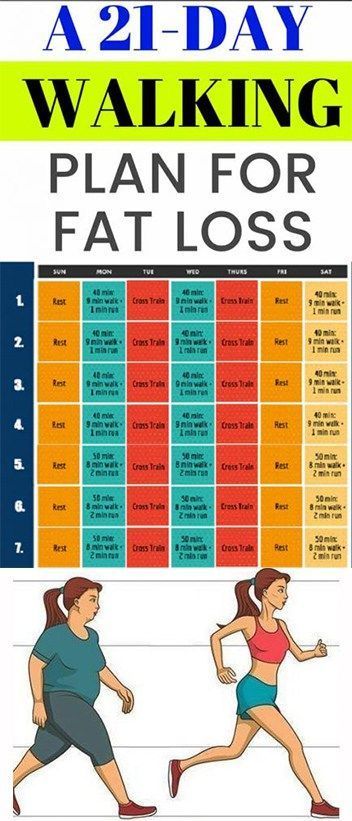
Here are some healthy options for lunch: Healthy fats and lean protein, as well as vegetables and salads. These are just some of the many options you should consider when making a weight loss lunch. A salad can also be made with slivered nuts. Layering different salad components can be used to create layered dishes. You can combine romaine lettuce with spinach, kale and spinach.
Healthy fats
Aim for 20-35% fat daily to ensure optimal health. Unprocessed foods are high in nutrients and low in sugar. Each of these macronutrients plays a different role in the body.
Lean protein
High protein lunch ideas can be a great way of giving your body the energy it needs throughout the day. These tasty and healthy lunch ideas do not have to include meat. They can be used in any diet from the Paleo to the Keto. They are loaded with healthy ingredients, and packed full of flavor.

Vegetables
Weight loss lunches with vegetables are healthy, especially if you include lots of non-starchy veggies. These foods are high fiber and low fat. This means that you'll feel fuller and eat fewer calories. Plus, they have low glycemic indexes and low energy density.
Salads
Salads are a great way to satisfy your hunger and still lose weight. They are also good for your health. Broccoli is a great ingredient for salads. You can also use cilantro leaves to add a flavorful twist. The addition of cilantro leaves can help you lose fat. Many recipes also contain salt and pepper. Some recipes include a little bit of lime or lemon juice.
Sandwiches
Sandwiches can be a great way of getting protein and fiber in your daily diet. There are so many choices. Lean meats include chicken, turkey and ham. You can also use lean beef cuts or turkey. A wrap or a sandwich that is vegetarian-friendly is a good option.
Buddha bowl
A Buddha bowl is an easy way to include a healthy vegetable in your lunch. You can use any grain to make it, and there are many variations to choose from. Rice is the most common grain in this bowl, but you can also use millet, quinoa, buckwheat, barley, or couscous.

Eggplant pizza
A great way to get more eggplant into your diet, is to make your pizza. This gluten-free and low-carb recipe takes just over an hour to prepare. You will enjoy the taste and the reduced calorie count! Plus, eggplant is rich in fiber and potassium.
FAQ
Does intermittent fasting affect my sleep?
Intermittent fasting is a good thing for your sleep. When you skip meals, your hunger hormones increase. You might find yourself awakened at night due to your hunger hormones.
Experts suggest skipping breakfast. Instead, they suggest having a light snack before bedtime.
If you still wake up hungry after this snack, you can consume a small meal just before going to bed.
Be careful not to overeat. If you do, you will gain weight rather than losing it.
Can I eat the fruits of my intermittent fasting diet?
You can't go wrong with fruits. They provide vitamins, minerals, fiber, antioxidants, and other nutrients. But, they can also contain sugar that can spike blood glucose levels. This can cause insulin resistance and weight gain. If you are looking to lose weight through an IF diet you need to choose low glycemic-index fruits such as oranges, pears, berries and melons.
How often do people fast every day?
The majority of people who follow the ketogenic diet fast only once a week. However, there are some who fast twice per week. Others fast three-times per week.
There are many lengths to fasting. Some fast for 24 hours while others fast for 48.
Some people will even travel more than 72 hours. But these extreme cases are very rare.
How long do I need to fast for weight loss?
The answer is not as simple as you might think. When determining the number of days you should fast for optimal fat reduction, there are many factors to consider. These are:
-
Your age. For example, if you're young (under 40), intermittent fasting may be too difficult for you because you have less time to recover from each day's fast. You may not have enough energy for a sustained period of daily fasting if you are older (over 60).
-
Your current body composition. You'll be most successful if you have lots of muscle mass. If you don't have a lot of muscle mass, shorter fasting periods may be more suitable.
-
How physically active are you. Exercise regularly and you may need to extend the fasting window in order to get enough sleep between workouts.
-
Your medical history. Some people with medical conditions like diabetes, heart disease, cancer, etc., may require additional fasting monitoring.
-
How can you manage stress? Stressful situations often make us eat less. To avoid this problem, you may need to increase the length of your fasting windows.
-
Your diet. Certain diets, like ketogenic diets, may require even longer fasting periods.
-
The quality of sleep you receive. The quality of your sleep is also a factor in increased appetite and decreased metabolism. It might take some time to find what works best for your needs.
-
Your daily intake of protein. Protein helps stabilize blood sugar levels, which means that eating more protein could potentially lead to lower insulin levels. This would allow one to fast for longer periods.
-
No matter if you are trying gain or lose weight. People trying to gain weight often need longer fasting periods than people trying to lose weight.
-
What percent of your daily calories are you consuming during your fasting time? Fasting for fewer calories per days may lead to greater fat loss than fasting with more calories.
-
Your fitness level. Faster people are more likely to be fit, and burn more calories during the day.
-
Your gender. Men tend to have greater appetites that women, so they may need a longer fast. Women tend to have smaller appetites so they might only need to fast for 20-30 minutes each morning.
-
Your lifestyle. Do you get enough physical activity? Do you work out several times a week? Is your job a long, sedentary one? These factors can impact how fast you should be moving.
-
How much do you spend per month on food? Eating healthy foods doesn't necessarily mean spending much money on groceries. You can save money by buying whole grains instead of white bread, fruits instead of candy bars, and lean meats instead of fatty cuts.
-
It is vital that you control your hunger. You don't have to skip meals if you don’t want to.
Statistics
- According to a study sponsored by the American Council on Exercise, a person weighing around 140 pounds (64 kg) would burn 108 calories at a 30-minute beginner's Pilates class or 168 calories at an advanced class of the same duration (26). (healthline.com)
- A 12-week study in 20 women with obesity found that walking for 50–70 minutes 3 times per week reduced body fat and waist circumference by an average of 1.5% and 1.1 inches (2.8 cm), respectively (healthline.com)
- Another study found that 24 weeks of weight training led to a 9% increase in metabolic rate among men, which equated to burning approximately 140 more calories per day. (healthline.com)
- It's estimated that half of all American adults attempt to lose weight every year (1Trusted (healthline.com)
External Links
How To
How to lose weight quickly without exercising
It is best to eat less calories than you burn to lose weight quickly. This will allow your body to begin burning stored fat for energy. In order to get enough calories your body will start to degrade muscle tissue. This can lead to some muscle loss. While you can still lose weight, if your diet doesn't include exercise, you'll likely lose even more muscle mass.
The key to losing weight fast without working out is to reduce your calorie intake. Most people think they should reduce their food intake to lose weight, but this isn't true. You want to eat fewer calories than what you burn when you are trying to lose weight. How much should you consume each day? It all depends on the type of activity that you do each day. A runner who walks three miles each day would only need about 2,500 calories per week. An individual who works all day at a desk would consume around 1,600 calories each day. A person who exercises frequently (like lifting weights), would only need about 1,600 calories per day.
If you are trying to lose weight, you should try to reduce your caloric intake. Many people believe they should eat less food to feel better. This is not true. Your body doesn't care whether you're hungry or not; it just wants to function properly. You need to track your calories intake to lose weight. There are many apps available online that allow you to monitor your calorie intake. MyFitnessPal (Calorie Counter), and LoseIt are just a few of the many apps available online.